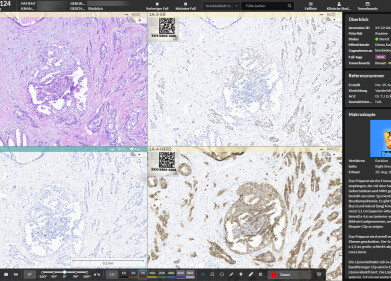Laboratory Products
Is Fussy Eating Genetic?
Oct 11 2016
Everybody knows a fussy eater. No – not special dietary requirements. We mean people who are just ‘fussy’. For most of us, it’s a bit awkward when you have them round for dinner. But what about the parents? Having a child who’s a fussy eater gives you a daily problem, and what’s worse is you can often blame yourself. But is it the parents’ fault – or is there actually something genetic at the root?
Selective eating
Scientists as University College London (UCL) have found a link between genes and fussy eating. Not just a link, in fact. They found that the food fussiness of toddlers is “heavily influenced by genes”. They split fussy eating into two categories:
- Food neophobia – A refusal to try new and unfamiliar foods
- Food fussiness – A more general selectivity about what they eat
Analysing the eating patterns of nearly 2,000 families with 16-month old twins, they found that environmental factors (parenting and eating routines) affect food fussiness more out of the two, but that genetic influences were actually more important in both cases.
Checking the patterns of fussy eaters
Parents completed a questionnaire to determine how fussy the children were. By analysing the responses, the scientists were able to determine whether food fussiness and food neophobia had been developed because of environmental differences or were genetic. The conclusion? Both fussy eating types were found to be “under moderate genetic control” in early childhood.
Accommodating for these fussy eating patterns was seen as a reaction to the genetic patterns, by giving children the food they will eat, rather than the parents causing food preferences to develop. Environmental factors like meal time conflicts did lead to an increase, particularly in food fussiness. But in general, the research acts to take the blame away from parents and home environments.
“Establishing a substantial genetic influence on both of these traits might be quite a relief to parents as they often feel judged or feel guilty for their children’s fussy eating. Understanding that these traits are largely innate might help to deflect this blame,” explains UCL PhD student Andrea Smith.
Following up
Researchers have not yet found the specific genetic characteristic that leads to fussy eating. Finding this kind of complex information requires advanced equipment to enable DNA analysis. The article ‘Chromatrap®: A fast, Reliable High-Throughput ChIP-seq Assay for Genome-Wide Protein-DNA Analysis’ reviews the latest techniques for DNA analysis and profiling, and discusses how it can vastly improve DNA-based research.
Digital Edition
International Labmate 49.6 - Sept 2024
September 2024
Chromatography Articles - HPLC gradient validation using non-invasive flowmeters Mass Spectrometry & Spectroscopy Articles - From R&D to QC, making NMR accessible for everyone: Putting NMR...
View all digital editions
Events
Oct 15 2024 Milan, Italy
Oct 17 2024 Dhaka, Bangladesh
Oct 20 2024 Fort Worth, TX, USA
Oct 21 2024 Dalian, China
Oct 30 2024 Birmingham, UK






.jpg)











